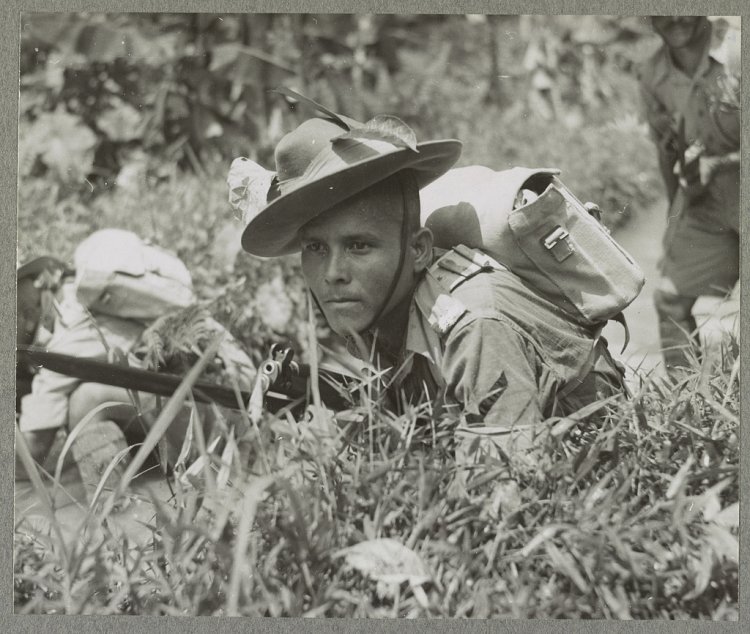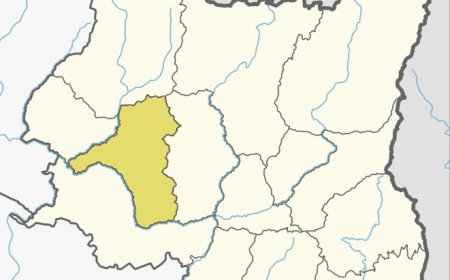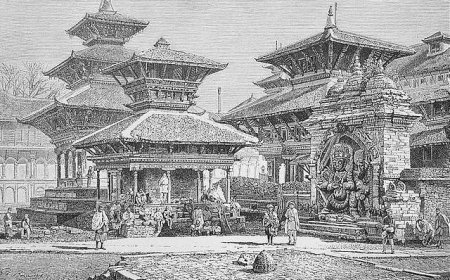The Legendary Gurkhas: Stories of Courage, Bravery, and Resilience
Unleashing the legendary Gurkhas: Discover their unwavering loyalty, exceptional bravery, and indelible mark on military history. Explore their rigorous selection process, intense training, cultural significance, and future as extraordinary soldiers.

The world is filled with stories of courage, bravery, and resilience. One such tale belongs to the legendary Gurkhas, a community of warriors renowned for their unwavering loyalty and exceptional military prowess. Hailing from the rugged hills of Nepal, the Gurkhas have left an indelible mark on the history of warfare. From the battlefields of the World Wars to modern conflicts, their valor and dedication have earned them a reputation as some of the fiercest soldiers to have ever walked the Earth.
The story of the Gurkhas is a testament to the power of courage, bravery, and resilience. Their unwavering loyalty and exceptional military prowess have earned them a well-deserved reputation as some of the fiercest soldiers to have ever walked the Earth. They have left an indelible mark on the history of warfare and continue to inspire future generations with their extraordinary tales of valor. The legacy of the Gurkhas stands as a reminder of the human capacity for greatness, even in the face of adversity.
Origins and Recruitment:
The roots of the Gurkhas can be traced back to the early 19th century when the British East India Company sought to recruit soldiers from the hills of Nepal. Recognizing the Nepalese as natural-born fighters, the British realized the potential of enlisting them in their ranks. The first Gurkha regiment, the Nasiri Battalion, was formed in 1815, and since then, Gurkhas have become an integral part of the British Army. Gurkhas have been involved in numerous conflicts, showcasing their unparalleled bravery time and again. The Indian Rebellion of 1857 was their first significant test, and they failed miserably, showing steadfast devotion to the British throne. During the two World Wars, when they bravely fought on different battlefields throughout the world, the Gurkhas' renown increased even more.
Selection Process:
The Gurkhas selection process is competitive and rigorous, conducted by the British Army. It involves recruitment rallies, written examinations, physical fitness tests, medical examinations, interviews, and a selection board at Nepal's British Gurkha Training Depot. The process assesses candidates' physical and intellectual capabilities, character, determination, and adherence to the Gurkha tradition. Successful candidates are offered a place in the rigorous training program, transforming them into disciplined and skilled soldiers.
Training:
Gurkha training is intense, disciplined, and focuses on developing physical and mental capabilities for combat. Candidates undergo rigorous physical exercises, military skills, discipline, and character development at the Gurkha Training Depot in Nepal. The curriculum includes combat techniques, weapons handling, marksmanship, navigation, and tactical maneuvers. Gurkhas are taught self-discipline, respect for authority, and teamwork. They also receive specialized instruction for specific operational environments, such as mountain warfare or jungle warfare. After completing training, Gurkhas become full-fledged members of the Gurkha regiment, embodying bravery, loyalty, and selflessness.
The Gurkhas have a long and distinguished history of military achievements that have solidified their reputation as exceptional warriors. Throughout history, the Gurkhas have demonstrated their valor on numerous battlefields. During the two World Wars, they fought alongside British forces, showcasing their exceptional bravery and unyielding spirit. In both conflicts, Gurkhas earned an impressive number of Victoria Crosses, the highest military award for valor in the British Commonwealth.
One of the most notable battles in Gurkha history is the Battle of Gallipoli in 1915. Facing impossible odds, the Gurkhas, with their khukuri (traditional Nepalese curved knives), charged fearlessly against entrenched enemy positions. Despite suffering heavy casualties, they displayed unwavering courage and ferocity, earning the respect and admiration of their comrades and adversaries alike.
During World War I, Gurkha regiments demonstrated exceptional bravery and tenacity in battles like the Battle of Loos, Gallipoli, and Mesopotamia. They fought in treacherous environments, such as the Battle of Monte Cassino in Italy and the Battle of Imphal in India. In recent conflicts, Gurkhas have demonstrated their military prowess in peacekeeping operations, contributing to stability and security in volatile environments. Their unwavering loyalty, combat skills, and commitment have earned them a reputation as some of the world's finest soldiers. Their military achievements have earned them numerous honors and awards, including Victoria Crosses.
Cultural Significance and Identity:
The Gurkhas, a unique community of warriors, have a rich cultural heritage, language, customs, and values that shape their identity. Their Nepalese origins, traditional clothing, dances, music, and folklore reflect their heritage. Religion, values, and military service shape their worldview and moral guidance. The Gurkhas' strong sense of camaraderie and brotherhood transcends geographical and generational boundaries, and their reputation as exceptional soldiers has earned them worldwide admiration. The iconic khukuri represents a symbol of their warrior heritage and a sense of pride for the Nepalese people. Their cultural significance remains a source of strength and unity, ensuring the preservation of their heritage and traditions for generations to come.
Legacy:
The Gurkhas' legacy is characterized by extraordinary valor, unwavering loyalty, and military prowess. Their storied history spans centuries, with their fearless warriors demonstrating courage and sacrifice. Their service in the British Army has earned them numerous Victoria Crosses, and their cultural significance extends beyond military service. The Gurkhas' legacy is preserved through the Gurkha Brigade Association, which supports veterans and fosters camaraderie among soldiers. Their enduring spirit of courage and sacrifice continues to inspire generations.
Challenges:
Gurkhas face unique challenges in recruitment, training, post-service benefits, and integration into civilian society. The rigorous selection process, separation from families and communities, and language barriers can create emotional and psychological challenges. Transitioning to civilian life after military service can be challenging, as Gurkha veterans may face challenges in accessing post-service benefits. Preserving Gurkha cultural identity and addressing veterans' unique needs is essential. The evolving nature of warfare and security threats also presents challenges, requiring continuous training and professional development. The COVID-19 pandemic has posed unprecedented challenges for Gurkhas, but resilience, discipline, and adaptability have allowed them to overcome obstacles.
The Future of Gurkhas:
The Gurkhas' future is shaped by recruitment, training, integration, and the evolving nature of warfare. High standards, diversity, and training will ensure the quality and capabilities of Gurkha soldiers. Integration into multinational forces and specialized training in counterterrorism, cybersecurity, and asymmetric warfare will be crucial. Preserving Gurkha cultural identity, promoting the well-being of veterans, and strengthening international collaborations will shape their future. By addressing unique needs and fostering collaboration, the Gurkhas can contribute to global security and maintain their status as exceptional soldiers.
The Gurkhas, a remarkable community of warriors from Nepal, have left an indelible mark on warfare history. Their disciplined professionalism, exceptional combat skills, and unbreakable spirit have earned them admiration and respect. Their vibrant cultural identity and military service strengthen their identity as warriors. As the world evolves, the Gurkhas will adapt and face new challenges, maintaining high standards and a strong spirit.
What's Your Reaction?





































































































